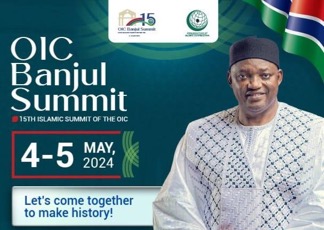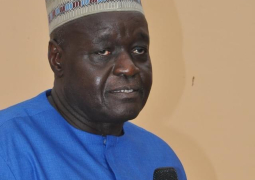
Understanding the Organization of Islamic Cooperation (OIC)
Established in 1969, the OIC serves as a cornerstone of solidarity and cooperation among Muslim-majority nations. With 57 member states spanning Africa, Asia, Europe, and the Middle East, the OIC represents a diverse mosaic of cultures, traditions, and economic landscapes. Notably, The Gambia joined this esteemed organization in 1974, marking a historic milestone in its engagement with the global Islamic community.
At its core, the OIC embodies a commitment to promoting economic, social, and political cooperation among its members. Through collaborative initiatives and strategic partnerships, the OIC seeks to foster sustainable development, prosperity, and stability across member states.
Economic Development Agenda
The OIC's economic agenda serves as a platform for member states aspiring to achieve economic progress and prosperity. At the forefront of this agenda are key focus areas such as trade facilitation, investment promotion, infrastructure development, poverty alleviation, capacity building, and humanitarian assistance.
Through targeted programs and initiatives, the OIC aims to empower member states to overcome economic challenges, unlock their potential, and chart a course towards sustainable development. From supporting infrastructure projects to promoting trade and investment opportunities, the OIC's economic agenda offers a roadmap for inclusive growth and prosperity.
Capitalizing on OIC Opportunities
The OIC Summit heralds a unique opportunity to tap into the vast potential of Islamic cooperation, thereby unlocking untapped economic avenues. Through strategic utilization of OIC platforms and initiatives, The Gambia can expedite its economic progress, paving the way for a brighter and more prosperous future.
The Islamic Development Bank (IsDB), an influential entity within the OIC, has been instrumental in financing transformative infrastructure projects across Africa. These initiatives, ranging from road networks and bridges to energy facilities and telecommunications infrastructure, have reshaped the development landscape of African OIC member countries. In The Gambia, these projects hold the promise of bolstering transportation networks, expanding energy access, and enhancing connectivity, thus fueling economic growth and development.
Furthermore, the OIC Trade Promotion Organization (TPA) and the Islamic Centre for Development of Trade (ICDT) act as catalysts for advancing trade and investment prospects among member states. Through platforms such as trade fairs, business forums, and investment conferences, The Gambia can spotlight its potential as a dynamic trade and investment destination, attracting investors and stimulating economic expansion.
The OIC's emphasis on capacity building and education presents significant opportunities for The Gambia's workforce. By leveraging scholarships, training programs, and educational resources offered by the OIC, Gambian professionals, researchers, and students can augment their skills and knowledge base. This, in turn, can drive innovation, enhance productivity, and foster growth across various sectors of the economy.
Navigating the Path Ahead
While the prospects are promising, navigating the path towards economic development through OIC collaborations requires careful consideration of challenges and obstacles.
Effective coordination, strategic planning, transparent governance frameworks, and regulatory reforms are essential to maximize the benefits derived from OIC initiatives. Sadly, these are areas in which the country has perpetually fallen short despite our best yet often ineffective efforts.
To remedy this, public and private sector collaboration, coupled with a commitment to inclusive and sustainable development, will be key to overcoming these challenges and realizing The Gambia's economic aspirations.
Seizing the Moment for a Brighter Future
As The Gambia welcomes leaders from across the Islamic world for the OIC Summit, it stands at a crossroads of opportunity and transformation. By embracing the principles of cooperation, innovation, and solidarity espoused by the OIC, The Gambia can chart a course towards a brighter and more prosperous future.
This moment calls for concerted action from all stakeholders – government, private sector, civil society, and citizens alike – to unite in realizing The Gambia's economic potential within the framework of the Organization of Islamic Cooperation. Through determination, collaboration, and steadfast perseverance, The Gambia has the opportunity to script a narrative of economic advancement and prosperity, serving as an exemplar for the wider region and the global community.
Regardless of its outcome, acknowledgement is owed to H.E. Adama Barrow, Honorable Minister Mamadou Tangara, H.E. Ambassador O.G Sallah, Hon. Yankuba Dibba, and their dedicated teams for their unwavering efforts spanning nearly half a decade in bringing this transformative opportunity to fruition on the shores of The Gambia. Now, it is incumbent upon us all to collectively seize this historic moment and translate its potential into tangible benefits for our nation and its people.
Read Other Articles In Opinion




